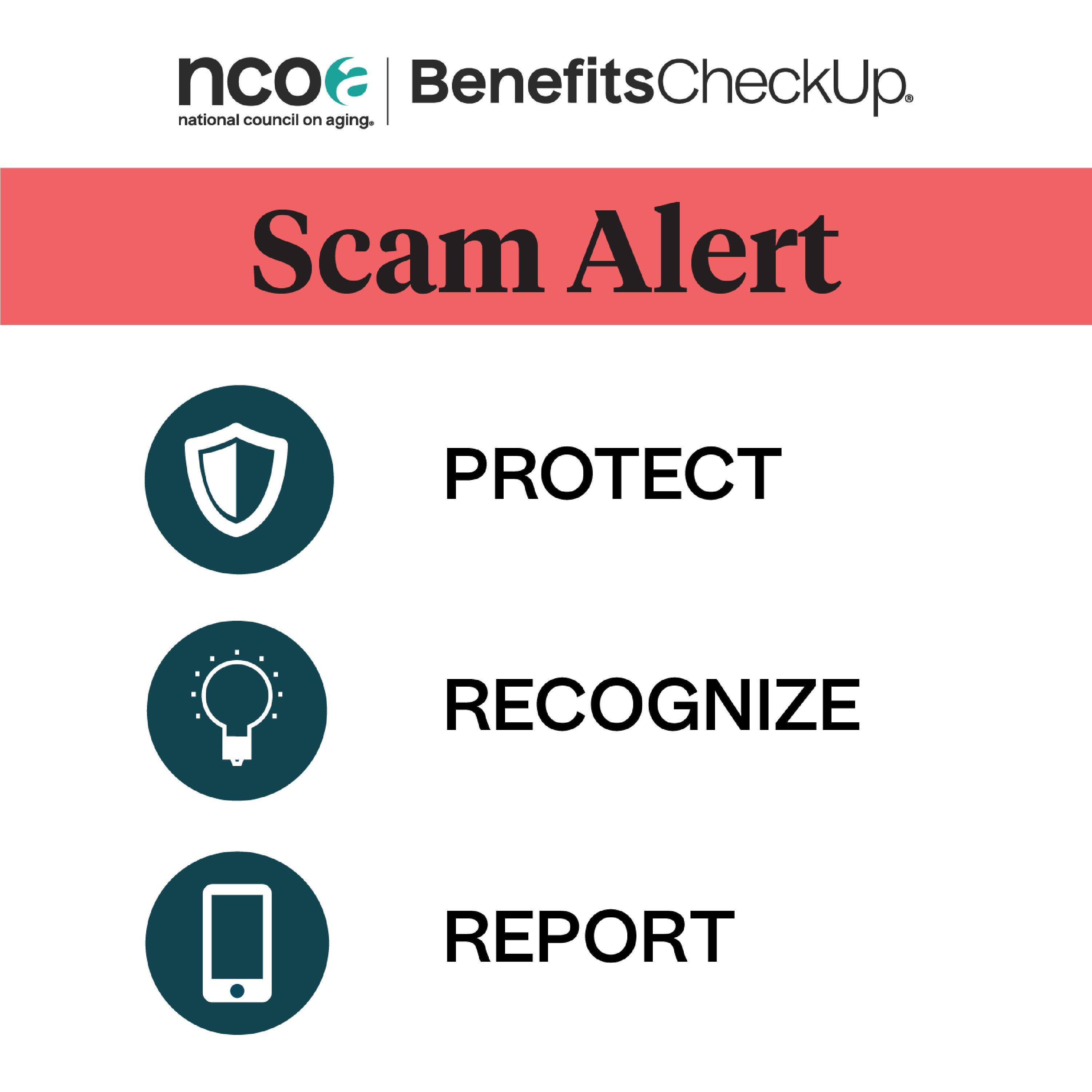
Related Topics
Getting scammed wasn't on Phyllis Weisberg’s radar. She was a trusting soul who believed most people are good and honest. But after accepting “help” from thieves posing as tech support reps, the unsuspecting 90-year-old was defrauded of $20,000.
Phyllis is not alone in her plight—far from it. New data from the Federal Trade Commission (FTC) revealed that consumers lost more than $10 billion to fraud in 2023—the first time losses have ever risen that high.1
Older people are especially vulnerable to online scams. According to the FBI Internet Crime Complaint Center (IC3), roughly $3.4 billion in total fraud losses were reported by Americans over age 60 in 2023, up 11% from 2022. The average loss per case was nearly $34,000.2
Why are seniors at higher risk for scams? Although many are barely making ends meet, scammers may believe they have ample retirement savings sitting in their bank account. Some older adults can be more trusting by nature, and some also have cognitive issues that can make them prone to exploitation. Additionally, many live alone, with no one to help manage their money.
According to Soo-Lynn Getz, Director of Fraud Prevention at Zelle®, it's important for older adults to stay diligent in understanding what scams are out there.
"When older adults are intentionally seeking and sharing knowledge on how current scams are perpetrated, along with what red flags to look for, this builds the ability to reflect on the situation while it is occurring, as well as to pause and reflect." Getz said. "The power of that pause could support an older adult in stopping the emotional response to act without thinking.”
Criminals who target the older adult population are constantly evolving their social engineering and their phishing techniques to be very convincing. "Scammers are really smart,” said Abigail Bishop, Head of External Relations for Scam Prevention at Amazon, during a panel at Age + Action 2024. “They are keeping a pulse on the way reputable organizations are communicating with consumers, and they are replicating those communications through all sorts of different communication channels.”
What are the top online scams targeting older adults?
Financial scams come in many forms, but there are certain types that zero in on older adults. Below are some of the most common.
Imposter scams
What is an imposter scam? It refers to any type of scam where a fraudster attempts to trick you by pretending to be someone else—like a government agent, bank representative, or trusted business. They may even pretend to be someone you know personally. In 2023, imposter scams were associated with the second highest reported consumer loss amount: $2.7 billion.1
Imposter scams lean on two main methods of trickery:
- Authority: With this technique, scammers take advantage of the fact that people are not likely to question authority figures, and/or they fear the “scary” consequences threatened by the scammer. For example, scammers may pretend to be:
- Your electric or gas company claiming they’ll cut off your services unless you pay what you owe them
- The IRS, Social Security Administration, or other government organization telling you that you owe taxes and/or fees and threatening criminal charges
- Your bank telling you there’s a problem with your account and requesting money transfers or account details
- Familiarity: This type of imposter scam is particularly devious. Bad actors pretend to be a loved one and try to persuade you to give them sensitive personal information or send them money through a digital payment platform, by wire, or via check. The scammer may, for instance:
- Claim to be (or be with) your grandchild or other close family member, saying they’re in serious trouble and need emergency financial help (e.g., bail money or money for medical bills). This is called the "grandparent scam."
- Pretend to be romantically interested in you, and suddenly start asking you for money or bank account details after gaining your trust and affection. This is also known as a sweetheart scam.
Important: NCOA was alerted to a scam involving unsolicited calls and text messages from someone claiming to be a representative from BenefitsCheckUp. This person might ask you to send them gift cards in exchange for enrollment in benefits programs that help pay for groceries, utilities, and other expenses.

If you’re contacted by someone attempting to pose as an NCOA representative, hang up the phone immediately. Do not reply to any text messages or click on any links.
Instead, email scams@ncoa.org to tell us what happened. You can also report the incident to the FTC by visiting ReportFraud.ftc.gov.
Tech support scams
Tech support scams, along with government imposter scams, were the top fraud categories affecting older adults in 2023, accounting for $1.3 billion in losses according to IC3.2
These scams usually involve unsolicited offers to fix a “problem” with your computer or software. They typically come from someone pretending to be from a legitimate software company (e.g., Microsoft or Apple). The scammer may initially reach out to you by phone, text message, or email. Or, you may get a pop-up alert while using your computer. The “representative” requests remote access to your system, which allows them to install malware or steal your information. In other cases, they pretend to repair your technical issues. Then, the scammer demands payment via gift card, money transfer via an online payment app, or another hard-to-trace method.
In a newer version of the tech support scam, the scammer tells you you’re owed a potential refund for a tech-related subscription. They request your bank information and then claim to have accidentally transferred a much larger refund than you were owed. You are asked to return the difference to them by mailing wrapped-up cash to an address they provide.
Online shopping scams
Online marketplaces like Amazon, eBay, Facebook Marketplace, and Craigslist are used by millions of consumers every day to buy, sell, and exchange everything from clothing to cookware. But their popularity also makes them a hotspot for scammers. Both buyers and sellers can fall prey to scams in an online marketplace:
- As a buyer, you may pay for something you either never receive—or what you did receive is not what you expected based on the product description. Or the seller may deny you a refund because you used an unauthorized payment type.
- As a seller, you may be contacted and asked to pay a bogus “business account upgrade” fee. Or you have a buyer who pays you more than the expected price. That buyer asks for a refund of the difference, then cancels the original payment, leaving you out of money.
Online marketplace scams have some telltale red flags. The offer may seem too good to be true—such as a high-demand item being sold for significantly less than its market value. The seller may push a false sense of urgency with the intention of getting you to act on impulse (instead of reason). Or they may provide suspiciously vague information about their product, shipping time, and return policies.
Another warning sign is product listings that demand specific payment methods, such as gift cards or money sent through a specific digital payment app or platform. These payment methods aren't approved by online marketplaces and often can't be refunded.
“Scammers tend to be creatures of habit," Getz said. "Some red flags older adults should always be looking for include a false sense of urgency to cause immediate action, being asked for their one-time passcode, being told to click on links to enter credentials and/or change their passwords, and being forced to use specific nonpayment protection payment methods."
Fake check scams
A fake check scam can happen when a scammer gives someone a fraudulent check to deposit and then asks them to send back money for a variety of reasons. Here are some examples:
- You respond to an online job ad for a remote job and are told you’re hired. The “employer” sends you a check and tells you to send a portion of the money back through a payment app or to purchase gift cards and send your "boss" the PIN numbers. The scammer redeems the gift cards instantly, leaving you with nothing. And if a payment is transferred through a payment app it often cannot be refunded.
- A company contacts you saying you’ve won a prize or sweepstakes. They send you a check, and then request a digital payment to cover taxes, shipping and handling, or processing fees. Legitimate sweepstakes do not work this way.
- A person buys an item from you online, and then “accidentally” sends you a check for more than what they owe you. They ask you to refund the balance with a digital payment platform (one that does not allow payment cancellation).
You may be wondering, how do scammers get away with writing fraudulent checks? These scams work so well because, thanks to modern printing technology, fake checks can be indistinguishable from the real thing—even to bank employees. They’re often printed with the names and addresses of reputable financial institutions. Fake checks can also be real checks written on bank accounts that belong to someone whose identity the scammer has stolen. It can take weeks for a bank to figure out that a check is fraudulent, which leaves plenty of time for a thief to collect their ill-gotten gains and disappear.
Awareness can help you stop scams in their tracks
The first step to protecting yourself and those you love from payment scams is simply knowing these dishonest practices exist.
"Awareness really is the best defense against fraud," says NCOA Chief Customer Officer Josh Hodges.
Scammers don’t rest; they’re constantly working on new and creative ways to bilk people out of their hard-earned money," Hodges continued.
"That’s why it’s so important to keep yourself up to date on the latest scams targeting older adults,” she said. Awareness of how scams work can help you recognize them in the moment, remember to always pause and think it through.
What to do if you’ve been scammed
If you believe you’ve been scammed, try not to feel ashamed. Scams are purposefully designed to catch a person off guard, and they can happen to any of us. Instead, call a trusted family member or friend and explain what occurred. Contact your financial institution as soon as possible if money has been taken from your account.
You can also report scams online to the FTC. While you may not be able to recover your loss, sharing your experience could help prevent the same scammers from harming other older adults.
This content on online scams was developed in partnership with Zelle. Zelle and the Zelle related marks are property of Early Warning Services, LLC.
Sources
1. Federal Trade Commission (FTC). As Nationwide Fraud Losses Top $10 Billion in 2023, FTC Steps Up Efforts to Protect the Public. Found on the internet at https://www.ftc.gov/news-events/news/press-releases/2024/02/nationwide-fraud-losses-top-10-billion-2023-ftc-steps-efforts-protect-public
2. Federal Bureau of Investigation (FBI) Internet Crimes Complaint Center (IC3). Elder Fraud Report 2023. Found on the internet at https://www.ic3
2. Reported Frauds and Losses by Age (2022). Federal Trade Commission. Found on the internet at https://public.tableau.com/app/profile/federal.trade.commission/viz/FraudReports/AgeFraud
3. Federal Bureau of Investigation. Elder Fraud Report 2022. Found on the internet at https://www.ic3.gov/Media/PDF/AnnualReport/2022_IC3ElderFraudReport.pdf



